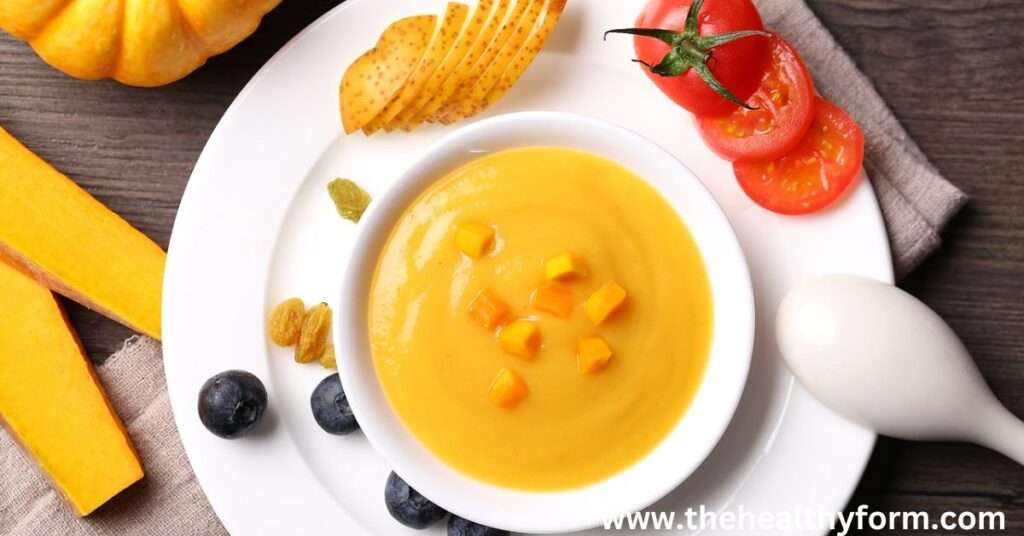The Importance of a Balanced Diet for Children
Looking for information on The Importance of a Balanced Diet for Children? Our website is a resource for understanding the role of different nutrients in the body, making healthy food choices, and meal planning. Learn how to ensure you and your family get the nutrients you need to live a healthy and balanced life. Proper nutrition is essential for children’s overall health and well-being. It’s important to ensure children get the nutrients they need to grow and develop and support their immune system and overall health. This blog post will explore the importance of nutrition and feeding for children and provide tips and strategies for ensuring that your child gets a balanced diet.

What are the best foods for children’s brain development?
The brain is one of the most rapidly developing organs in the body, and proper nutrition is essential for optimal brain development. Some of the best foods for children’s brain development include:
Fruits and vegetables should be a regular part of every child’s diet since they include vital vitamins, minerals, and antioxidants that promote brain health. Some of the top choices are:
Berries: Blueberries, strawberries, raspberries, and other berries contain antioxidants that guard against harm to the brain’s cells.
Leafy greens: Leafy greens like spinach and kale are rich in folate, which helps with cognitive function.
Cruciferous veggies: Choline, crucial for memory and learning, is abundant in cruciferous vegetables, including broccoli, cauliflower, and cabbage.
Complex carbohydrates provide brain energy and are present in whole grains. Good choices comprise:
Oatmeal: This food is an excellent source of fiber and complex carbs, which give the brain long-lasting energy.
Bread prepared with whole grains is preferable to bread made with refined flour.
Brown rice: This food has protein and fiber and is a healthy source of complex carbs.
Protein is crucial for developing and maintaining tissues, particularly brain tissues. For kids, a few good sources of protein are:
Lean beef, hog, and chicken chops are excellent protein sources in meats.
Fish: Omega-3 fatty acids, which enhance brain function, are abundant in fatty fish like salmon, tuna, and mackerel.
Beans: They are a fantastic source of fiber and plant-based protein.
Almonds, walnuts, and other nuts are wonderful protein sources and healthy fats.
Healthy fats: They are crucial for maintaining good brain function and may be found in:
Avocados: Monounsaturated fats, which assist brain function, are present in these in good amounts.
Nuts and seeds include protein and other essential elements and are a wonderful source of healthy fats.
Monounsaturated fats, a good source of olive oil, improve the brain’s health.

How do you get kids to eat vegetables?
Getting kids to eat vegetables can be a challenge for many parents. Here are a few strategies you can try:
- Offer small tastes of new vegetables alongside their favorites: Children may be more likely to try a new vegetable if it’s served alongside something they already enjoy.
- Make vegetable fun: Use fun names or shapes to make vegetables more appealing to children.
- Involve kids in meal planning and preparation: Children may be more likely to try new vegetables if they have a say in what’s being served.
- Be a good role model: Children are more likely to eat vegetables if they see their parents eating them.
What are the best sources of protein for children?
Protein is an important nutrient for children, as it helps to build and repair tissues, including muscle, skin, and bone. Some good sources of protein for children include:
- Meats are high in protein and other essential nutrients, such as iron and zinc. Good options for children include chicken, turkey, and lean cuts of beef and pork.
- Poultry: Chicken and turkey are good protein sources and other essential nutrients.
- Fish: Fish is a good source of protein and omega-3 fatty acids, which are important for brain health.
- Beans: These are a good source of protein and fiber and can be added to soups, stews, and other dishes.
- Nuts and seeds: These are a good source of protein, as well as healthy fats, and can be added to cereals, yogurt, and other dishes.
How to make homemade baby food?
Making homemade baby food can be a healthy and cost-effective feeding option. Here are some tips for making homemade baby food:
- Choose fresh, ripe produce: For maximum flavor and nutrition, select fresh produce.
- Steam or boil: Steaming or boiling vegetables and fruits until tender is the best way to preserve their nutrients.
- Mash or puree: Mash or puree cooked foods until smooth and easily swallowable.
- Freeze in ice cube trays: Portion the pureed food into ice cube trays and freeze until solid. Transfer the cubes to a freezer bag and label them with the date and type of food.

What are the best snack options for children?
It’s important to choose healthy snacks for children to ensure they get the necessary nutrients. Some healthy snack options for children include:
- Fresh fruit: Apples, bananas, berries, and other fresh fruit make a healthy and tasty snack.
- Vegetables: Carrots, cherry tomatoes, cucumbers, and other vegetables make a crunchy and nutritious snack.
- Whole grain crackers or rice cakes: These can be topped with peanut butter, hummus, or other spreads for a protein-rich snack.
- Yogurt: Yogurt is a good source of calcium and protein and can be topped with fruit or granola for added flavor and nutrition.
- Nuts and seeds are good protein and healthy fats sources and can be eaten independently or added to yogurt or cereals.
FAQ about Balanced Diet for Children
Here are some of the most common questions people have about a balanced diet for children:
What is a balanced diet for children?
A balanced diet for children includes a variety of foods from all food groups in appropriate portions. It should provide all the necessary nutrients for growth and development, including protein, carbohydrates, healthy fats, vitamins, and minerals.
What foods should be included in a balanced diet for children?
Examples of foods that should be included in a balanced diet for children are fruits, vegetables, whole grains, lean proteins, low-fat dairy products, and healthy fats such as nuts, seeds, and avocados.
How many servings of fruits and vegetables should children eat each day?
Children should aim to eat at least five servings of fruits and vegetables daily. A serving size is usually about the size of a child’s fist.
How much protein do children need in their diet?
The recommended amount of protein for children varies based on age and gender. As a general guideline, children should consume about 0.5-1 gram of protein per pound of body weight per day.
Are carbohydrates bad for children?
Carbohydrates are an important energy source for children and should be included in their diet. However, it’s important to choose complex carbohydrates such as whole grains, fruits, and vegetables rather than refined carbohydrates such as sugary snacks and white bread.
How much water should children drink each day?
Depending on age and activity level, children should drink at least 6-8 glasses of water daily.
Conclusion
Proper nutrition and feeding are essential for children’s overall health and well-being. It’s important to ensure that children get a balanced diet that includes a variety of fruits, vegetables, whole grains, protein, and healthy fats. By offering a variety of healthy foods and drinks and teaching children good eating habits, you can support their growth and development and help them maintain good health.


